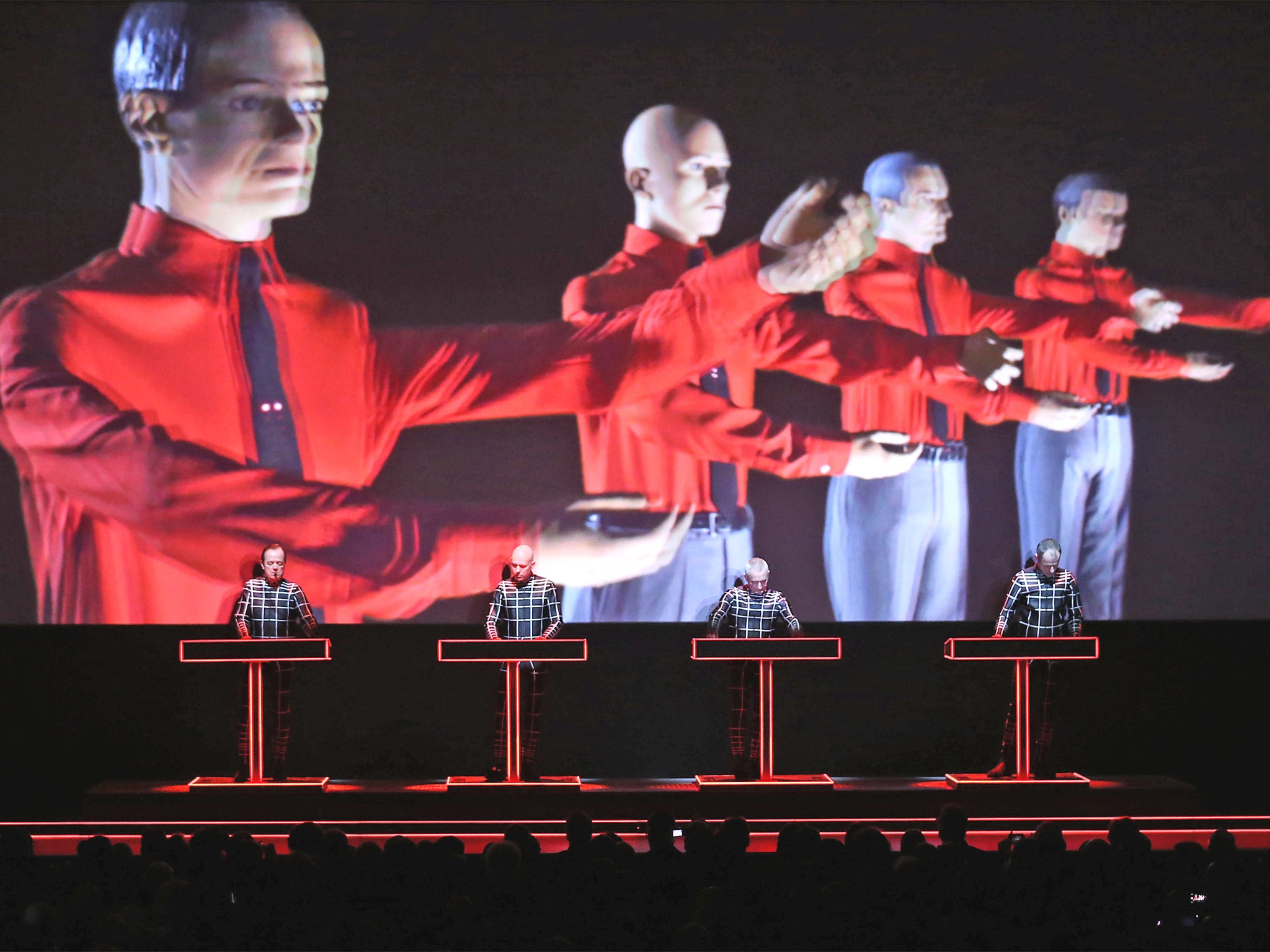Electronic music stars split from Rock to form own lobbying group

Your support helps us to tell the story
From reproductive rights to climate change to Big Tech, The Independent is on the ground when the story is developing. Whether it's investigating the financials of Elon Musk's pro-Trump PAC or producing our latest documentary, 'The A Word', which shines a light on the American women fighting for reproductive rights, we know how important it is to parse out the facts from the messaging.
At such a critical moment in US history, we need reporters on the ground. Your donation allows us to keep sending journalists to speak to both sides of the story.
The Independent is trusted by Americans across the entire political spectrum. And unlike many other quality news outlets, we choose not to lock Americans out of our reporting and analysis with paywalls. We believe quality journalism should be available to everyone, paid for by those who can afford it.
Your support makes all the difference.For too long, rock’s guitar-wielding stars have sneered at the button-pushing upstarts of electronic music.
But now the dominance of dance music has prompted its leading lights to create the first lobbying group designed purely to advance the claims of electronic music.
Leading DJs, musicians, managers, record labels and festival promoters have joined forces to create the Association For Electronic Music (AFEM), a trade organisation with a mission to “represent the common interests of all individuals and companies whose business is electronic dance music and to advocate on behalf of electronic dance music as a musical genre.”
The formal breakaway of electronic dance music, incorporating the sub-genres of techno, dubstep, and house, from hoary old rock music, is timely.
On Wednesday night, Kraftwerk play the first of eight sold-out special concerts at Tate Modern, with tickets to see the German electronic music pioneers trading for £500 on secondary websites.
Meanwhile the US has fallen under the spell of Electronic Dance Music, turning producers including dubstep star Skrillex and the French producer David Guetta into festival-headlining acts.
“Electronic music has been the red-headed stepchild of music genres,” claims Kurosh Nasseri, a Washington DC-based entertainment lawyer who represents clients including electro producer Armand van Helden and techno DJ Carl Craig.
Nasseri, AFEM co-founder, said: “Despite the longevity of electronic dance music it is still not viewed as a legitimate genre or taken seriously by governments, the media and the industry. It’s time for our business to speak with a unified voice to represent the genre and to address the issues.”
Key demands for AFEM, which has appointed Nile Rodgers, the Chic musician, as Ambassador, include equal representation for dance music at award ceremonies.
“The Brits eliminated the best dance act category in 2005. We’d like to see that reinstated,” said Nasseri, a trustee of the Grammys. He is pushing for the Dance/Electronica category at the US music awards, held this weekend, to be included in the live telecast.
AFEM will also challenge perceptions that dance music festivals are unsafe. “Accidents do happen when large numbers of people come together and the tendency is to blame Electronic Dance Music and make a link with drugs,” Nasseri said. “But it’s ludicrous to ascribe accidents to a musical format. Mishaps occur just the same at rock events.”
The not-for-profit organisation hopes to attract support from artists who have helped popularise electronic music, such as Lady Gaga and Madonna, and hopes that its star names will lobby governments. Nasseri said: “If there are relevant Congressional hearings it would make sense to testify. It helps create legitimacy around the genre.”
AFEM will open offices in the UK and US and its advisory board includes the manager of the chart-topping dance group Swedish House Mafia, Sony Music’s head of Electronic Music and the CEO of Beatport, the leading online music store for DJs.
But who should be allowed to join AFEM’s community of DJs and synth-prodders? Will a rock band which adds electronic beats to boost its commercial prospects be allowed in? “Defining electronic music is difficult,” said Nasseri. “We hope to cast a wide net and I’m tempted to say let’s be inclusive if there’s any doubt.”
On Wednesday night, Kraftwerk commence their first live UK dates since 2004 with a performance of their classic 1974 Autobahn album. Demand to see the shows caused the Tate Modern website to crash and the gallery said it will set up a dedicated queuing area at the River Entrance for any £60 returned tickets.
Basement Jaxx was the last act to win the Dance Act category at the Brit Awards. The organisers replaced the category in 2005 with a Best Live Act prize, won by Muse. The switch was seen as a snub to a dance scene, which was then perceived to be suffering an artistic decline as guitar bands enjoyed a brief commercial renaissance.
AFEM co-founder Ben Turner, director of Ibiza’s International Music Summit and manager of Detroit techno artist Richie Hawtin, said: “These are extraordinary times for electronic music. We have seen it break through into the mainstream in the US and become the backbone of modern pop music. Yet despite such success, it feels like there is an even bigger need for an Association for Electronic Music to exist and speak with one voice.”
Join our commenting forum
Join thought-provoking conversations, follow other Independent readers and see their replies
Comments